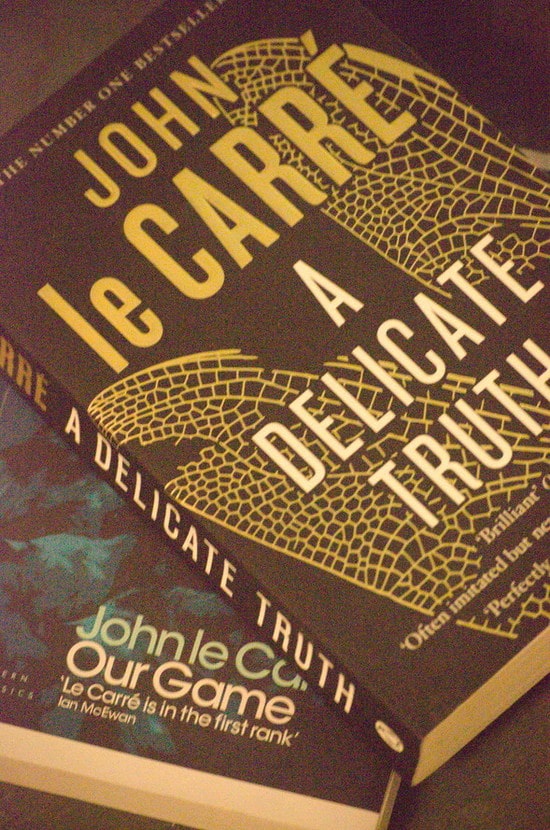An Inexpert View… John Le Carré - Left Wing or Right Wing?
Last autumn, for some reason the thought occurred to delve into the famous late author’s work for the first time. It may have something to do with the noble Carne Ross, whose work we were also exploring. Yes, the book A Delicate Truth is reputedly, and partly, based on the truth-seeking, campaigning diplomat whose interesting TEDx talk “The Accidental Anarchist” has received over one hundred thousand views.
For our first dip we chose the aforementioned work, along with an earlier mid-period classic Our Game. The endorsements of le Carré as the premier exponent of spy fiction, and as a “most significant novelist” (with clauses), indicated that the books were worth a punt at least.
I was suprised by the lightness of his style, although the content is very much as dark as this genre gets. The love-scenes and some portrayals were fairly standard, nothing much to write home about. But the well paced and vivid storytelling deserves its reputation among the espionage pantheon.
Expanding to genre fiction in general: not something to shake down the murky and now quite old Chandler and leave in a hurry. But then noir perhaps has an inbuilt glamour and celluloid framework that gives it a fighting start… We found both novels worthwhile, the former for its scathing crusade against the vicious and unchecked elements of the status quo, and Our Game for its romanticism and depth. Though not for its depth of romance.
Personally, the politics - or rather the morality - of le Carré is the most complelling thing, which takes us to our topic in hand. On perusing the various web-based opinions of the author it would seem that there’s no pleasing anyone. The old left can’t forgive him for his prior rôle in infiltrating activist groups, while the establishment they perceive him to be an inseparable part of seem to have seen him as something thorn in their side, a rebel, a scratch they couldn’t itch. For despite his training and employment as a spook, he is fundamentally a moralist and delivers a strong implied judgement on the actions and the agencies of the state at large. Couched firmly within his framework of fiction.
Thus there is a palpable perception of him as falling foul of something like Macarthyism, or in which discrete forms it is echoed across the atlantic. It must be said that he appears to have been well received among his peers in his chosen profession, despite his often critical and never glamourising stance. Perhaps this tension is at the heart of some kind of Britishness. The mother who will scold impoliteness, while the father goes out to war.
The author gained Irish citizenship before he died - while ostensibly motivated by ancestral researches and euro-political wranglings, this may be perceived as a bit of an up-yours too.
Thus le Carré falls betwixt and between. Uncovering (or at least suggesting) abuses of power, while also having participated in the very same structure. One could argue that this is perfectly natural and that he found redemption by narrative, do so if you wish. The author himself maintained that he wasn’t particularly politically oriented in either direction, which is fair - seeing as his approach could be more accurately described more as the moral conscience of the British establishment. Yes it has one, just about.
Non-affiliated purchase link: Le Carré at World of Books
∞ Last edit/update on: 14 / 3 / 2023
